Sell to thrive, not sell to survive: The Sunderland 'model' explained - in their own words

It’s been a very interesting two and a half weeks to be a Sunderland fan. The sacking of Tony Mowbray and appointment of Michael Beale both prompted debate about how the club is being run at the moment.
For us fans, the word that dominates the discussion is often the ‘model’.
"I don't know who first used the words 'the model', I think it might have been me and if it was I should probably check myself because that has come back every [time],” sporting director Kristjaan Speakman said this week while he was unveiling Beale to the press.
It was an interesting press conference, mainly because Speakman is a hugely influential figure at Sunderland and yet has largely kept himself away from anything but club media. The opportunity for him to be quizzed in an open forum by the press threw up some noteworthy stuff.
Speakman is right that the subject of ‘the model’ comes up every time, and part of that, according to Speakman at least, is because there is a general misinterpretation, or “misrepresentation” of what they are trying to do.
In fairness, the media seem quite oblivious to it all as well for the most part. The various so-called expert analyses since Mowbray's sacking certainly prove that.
So, let’s take a deep dive into the much talk-about, and often maligned, Sunderland model, looking at what those behind it have said about it, to examine what in the blue hell it actually is.
What is the Sunderland model?
In short, it is to slowly grow grow the club so that it not only becomes strong again, but sustainably so.
There are three key 's' words in that, all that are central to the strategy - slow, strong, sustainable.
Sunderland have a belief that the days of a club being able to spend a benefactor's money to the top are over, and that even if it could be done that club would eventually hit a ceiling where the spending of the past catches up with them and restricts their future.
Investment is therefore gradual, player development becomes a revenue stream, and reinvestment used to pay for progression. Signing and developing quality young players, therefore, is central to the strategy.
It's still essentially the same thing - spend your way to the top. That spending is just funded by generating your own money rather than spending what a benefactor will give them.
Should Sunderland be spending more?
One of the biggest criticisms of Sunderland has been about what is considered a lack of spending.
It is easy to see where that criticism comes from. After all, Sunderland are the biggest club in the Championship with the biggest fanbase and gates.
Additionally, generally speaking in football, transfer spend directly correlates with the perception of ambition. Spend little, it’s lacking ambition. Spend a lot, you’re going for it.
However, football changes, and in the last few years it has changed considerably with regards the distribution of the game’s wealth.
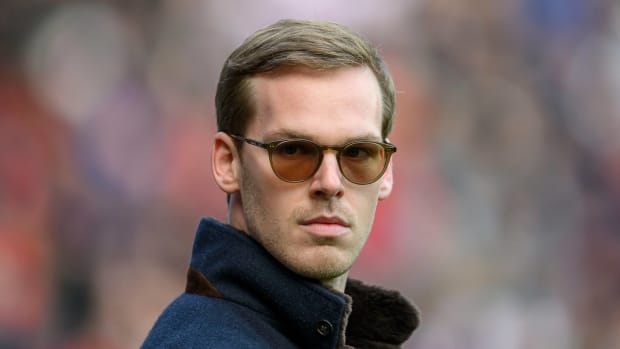
With oil-rich countries involving themselves in the game at the top, prices for players have been driven up for everyone.
Man City want a player who previously would have cost £50million, but because the selling club (a mid-table Premier League one) knows City are backed by billions, they decide they want £100million and get it.
Then they have to replace that player, but everyone knows they have £100m in their pocket so the £20million replacement they want is suddenly £40million.
And it keeps on trickling down the system until proven Championship players cost twice as much as they used to. Meanwhile, the FFP regulations don’t change, so the improvement you can make from the maximum permitted investment from owners just keeps on getting smaller.
With every TV deal the prices go up again, and then you also have the additional problem of how to stay in the Premier League once you do get there, especially if you’ve already maxed yourself out in terms of FFP by trying to get there.
- READ NEXT: Kristjaan Speakman: 'Obsession with progression' the reason for Tony Mowbray Sunderland sacking
That, of course, is only talking about the best-case scenario of actually getting promoted after spending big money that you don’t have as well. It’s the worst case that Is the one that perhaps provides the best argument for taking a much more frugal approach.
That is something that Kyril Louis-Dreyfus has specifically referenced in the past.
“Categorically, we only recruit if there is a strong willingness to come to Sunderland and move to the area,” he told a Red and White Army meeting in November 2022. “We’ve stopped signing players who you have to overpay and convince to come here”
“Look at Derby County. They were in the playoff final, 90 mins away from the Premier League and 18 months later they’re in administration. That’s a risk none of us are willing to take.”
Are Sunderland a ‘selling club’?
This is the next place that the debate around the Sunderland ‘model’ goes and it’s a very logical one, especially given the decision to sell Ross Stewart rather than give him the kind wages it would have taken to keep him on Wearside.
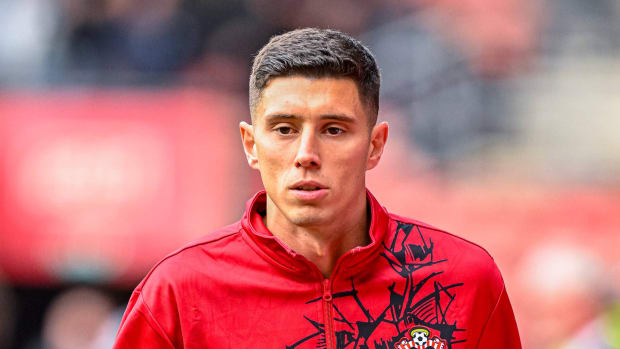
And, ultimately, the answer is that yes, Sunderland are a selling club. However, while buying players has cultural connotations with ambition, selling them doesn’t necessarily have to have connotations with a lack of it.
Kristjaan Speakman, talking at the same RAWA meeting, admitted as much. He also, though, suggested that the fanbase’s perception of selling players is coloured by them never having the opportunity to see a full picture.
“Every club in the world sells players in some shape or form,” Speakman said. “Over the last years Sunderland haven’t had players of value to sell.”
He is right there. Sunderland have never really done a good job of selling their best players. The Jordan Henderson money was wasted, the Jordan Pickford money was used to service debts.
However, if you’re old enough, there have been times when we had a glimpse into how selling can be progressive if the club is strong elsewhere.
In the summer of 1999, Lee Clark and Michael Bridges were sold and Allan Johnston ostracised. All three, Clark and Johnston especially, had been key players in the promotion team the previous season.
However, Stefan Schwarz was signed and Gavin McCann, signed during the previous season, was ready to step up. Alex Rae was handed a bigger role too, and Eric Roy was brought in on a free from Marseille. Not all the incoming transfers went well, and the less said about Carsten Fredgaard and Milton Nunez the better, but Sunderland certainly kept on progressing and had a brilliant season in the Premier League.
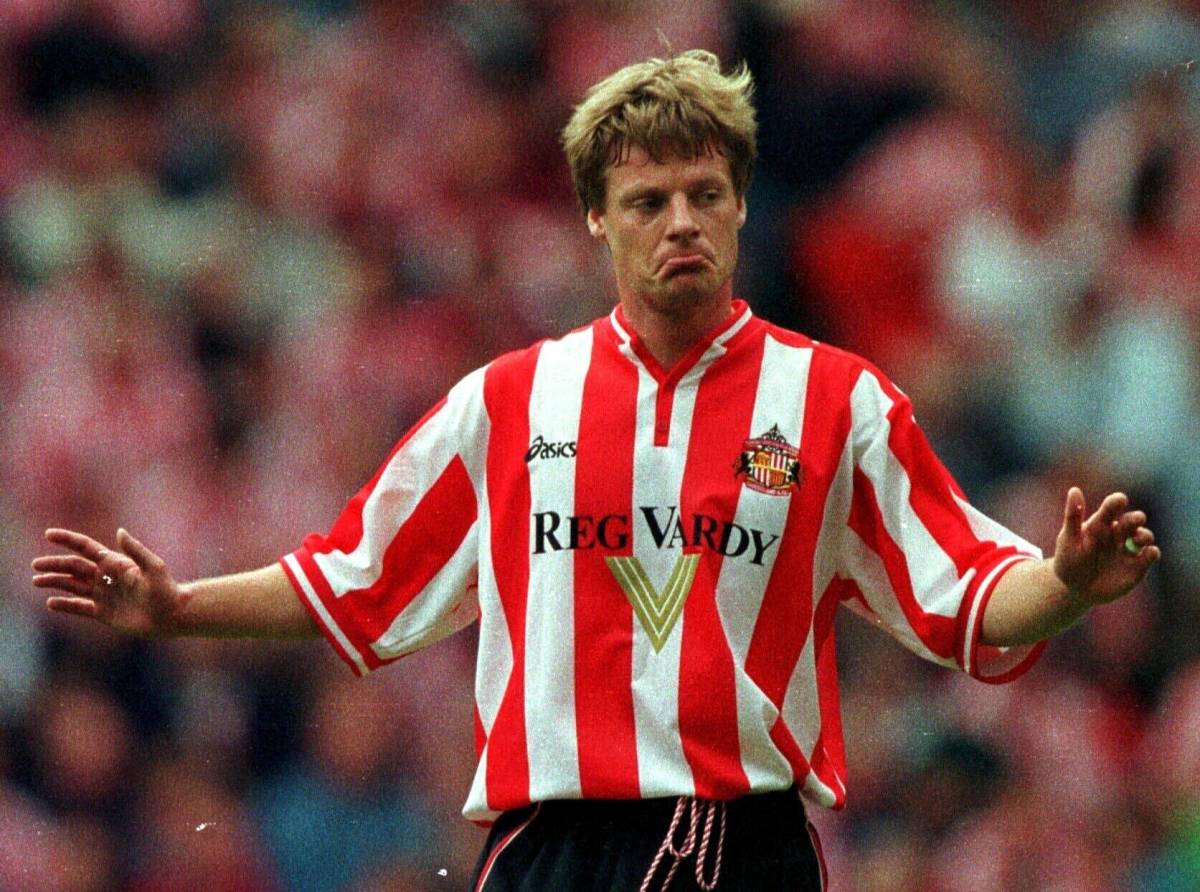
Around the same time, Manchester United were at their height with Alex Ferguson, and he probably demonstrated better than anyone how everyone is a selling club, so it’s not about if you sell, but how well you do it.
During his time at Old Trafford, Ferguson sold the likes of Paul Ince, David Beckham, Jaap Stam, Cristiano Ronaldo and Ruud van Nistelrooy. It never hurt them.
Many might say that these are all examples of a by-gone era and it can’t be done today, and again it’s a reasonable point to make.
Sunderland have addressed this also, though, citing Brentford specifically as the example they are trying to replicate.
“They made profit,” Sunderland director David Jones said. “Nobody makes profit in the Championship. They got promoted and made profit.”
For total balance, it should be stated that Brentford do owe their owner Matthew Benham a large sum of money, but most of that is due to the construction of their new Stadium.
But why not just keep your best players?
Money. Isn’t that always the answer to pretty much every ‘why’ question in modern football?
That was ultimately why Ross Stewart was sold. It’s easy to say ‘just pay him what it takes,’ but the reality is that Sunderland don’t have what it took.
Southampton did, not because they had more ambition but, ironically, because of player sales – they very thing that many Sunderland fans take to mean a lack of ambition.
It’s all very well and good to want Sunderland to compete with everyone, but the club have to play the hand they have, not the hand they want. Southampton made more than £120million profit in player sales last summer and have parachute payments coming in too. It’s why they are looking at €30million wingers in January.
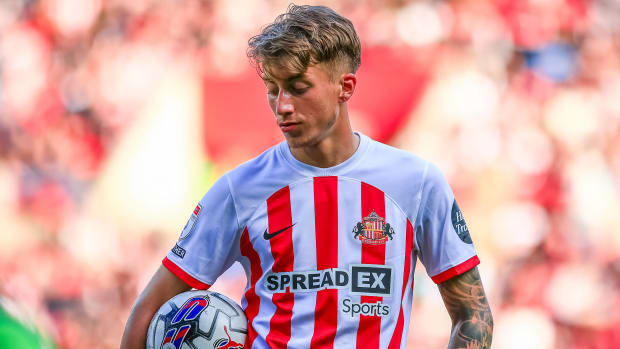
With all the ambition in the world, Sunderland can’t compete with that kind of spending power at the moment, and ultimately players are just like everyone else – they want to earn as much money as they can from their job. Sooner or later, they are going to get an offer of that from someone with whom Sunderland cannot compete.
"The selling the players part is a by-product of doing well, and that should be on the choice of the club in collaboration with the player at a given moment,” sporting director Kristjaan Speakman said earlier this week.
"When players do really, really, well and they attract the attention of the Premier League outfits then naturally that is going to be a difficult moment.”
Selling players is, therefore, a necessary and unavoidable step along the journey to becoming a club who has enough resources to reduce the number of clubs who are able to lure your best players away with the promise of bigger money.
After all, as Brentford said after submitting their accounts following their first season in the Premier League: “Profit on player trading is much reduced in the current year at £4.6m (2021: £44.3m), with the club able to keep hold of its key assets given the significant increase in revenue streams.”
There is, though, another key reason for selling players that isn’t really talked about enough, and that is because, paradoxically, it helps a club attract players.
That logic again goes completely against your instincts as a supporter. Why would a club want to join your club if it knows that you’re going to sell your best players?
I suppose, ultimately, it’s just because the mindset of a player is completely different to those of supporters in modern football. As unsettling as it is, talented young players don’t join a club because of the club’s ambitions, but because of their own. Nowadays, if you’re not an elite club who pay players millions a year, you’re a stepping stone to one that does.
Therefore, Sunderland need to sell themselves to top young players that relies upon a perception that they will develop them but also not stand in their way when it comes to their own personal career ambitions.
Work on that went back to the very start. “We signed Callum Doyle to show clubs that we’re willing to start a 17-18 year old if they’re good enough,” Speakman explained in 2022.
“You have to sell players to convince players to come to you,” Jones continued.
You can certainly see progression there too. The club have gone from loaning a 17-year-old from Manchester City to buying one of the most highly-rated 17-year-olds in English football in Jobe Bellingham last summer.
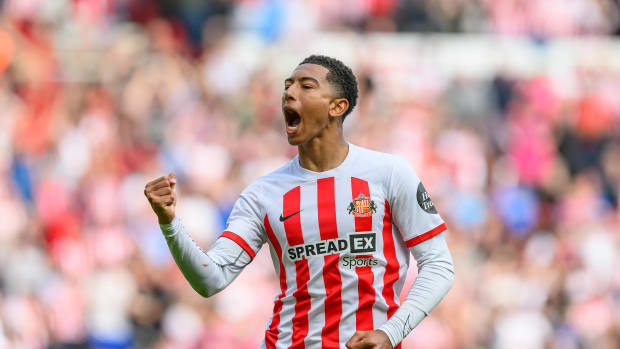
It all comes back to the old Sir Alex Ferguson thing of it not being about if you sell players that counts, because everyone will have to, but how you do it.
Selling to survive vs selling to thrive
This is probably the one question at the very core of the confusion and controversy over Sunderland’s transfer ‘model.’
Historically speaking, there has always been a hierarchy in terms of clubs in English football. The big clubs bought players because they could, the small clubs sold players because they needed the money.
For many football fans, those hierarchy are set in stone, and we are right back at the ‘spending = ambition, selling = acceptance’ mentality.
Football has changed, though, and now you are able to sell to thrive, not just survive. That is what Sunderland are trying to do. Selling is a means to an ambitious end, not the demoralising end in itself. It’s about generating the resources required to progress, because there isn’t really another way of doing it.
And, as long as that is what they do, the logic is sound.
On the accusations that Sunderland being open to selling players reflects a lack of ambition, Speakman said this week: "I feel it is a slight misrepresentation around the direction of travel and what the objective of the club is because if we were a selling club, we would have made loads of sales - and we haven't.
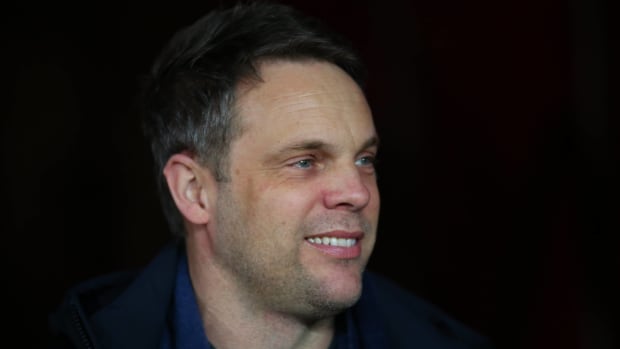
"The football club has turned down numerous bids on numerous players over the last couple of years, and we have sold one player.
"That by-product from doing well does allow you to trade and one of the most efficient methods of getting to the top of our league with more spending power to invest in whatever you want to invest in - facilities, people, players - is to trade players.
"But it won't ever be against our number one objective which is to get promoted and grow the club."
Again, we can look at Brentford as an example of a club who did just that. They signed Scott Hogan from Rochdale for £750,000 and included a sell-on fee to the League One side to sweeten the deal whilst reducing the initial outlay.
They later sold him to Aston Villa for around £12million. That money was invested over the next 18 months on the likes of Ollie Watkins, Said Benrahma, Neal Maupay and Ezri Konta. All of them were sold on for huge profits as well, and Ivan Toney bought.
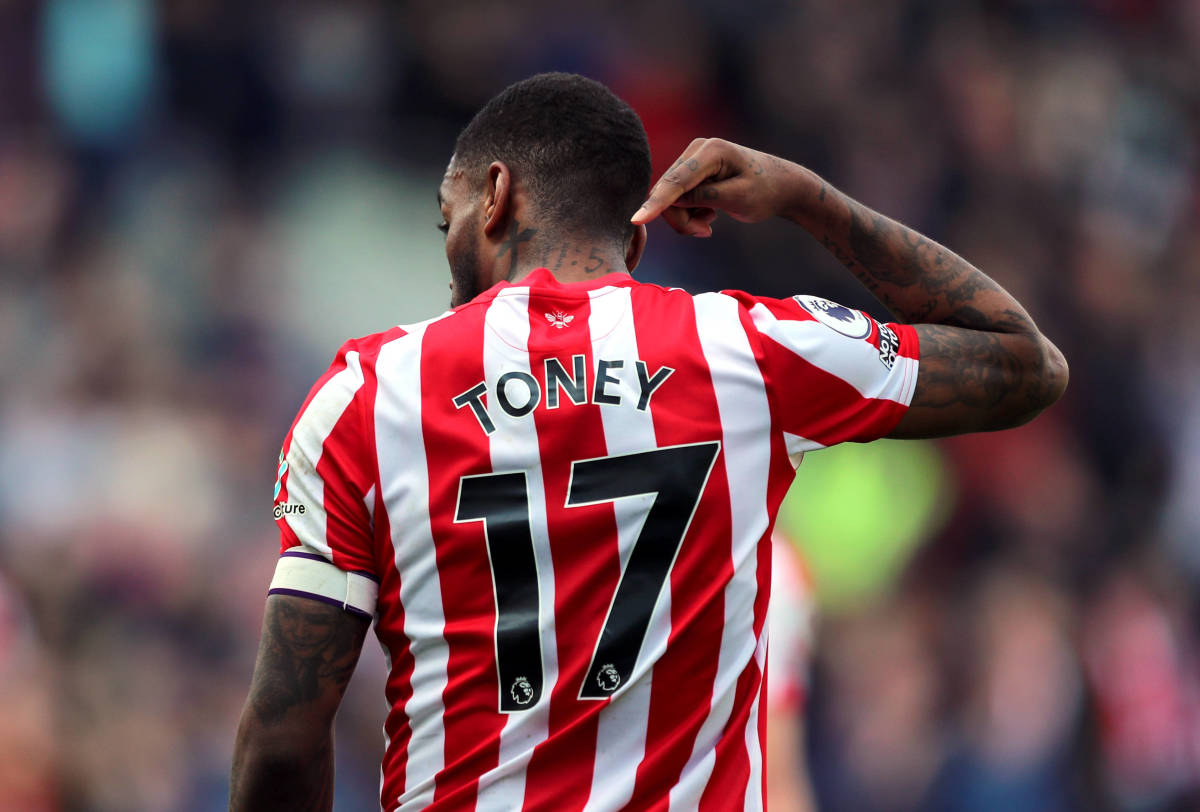
Selling players funded continued progression and improvements in the quality of players they were attracting. It was very much selling to thrive, not selling to survive.
Sunderland’s ‘5-year plan’
Whether you’re on board with that probably depends upon your own timescale for wanting to see Sunderland back in the Premier League.
It’s not going to be a quick process. But, then again, the club themselves have laid out the timescale to which they are working.
In the club accounts for the year ending 2022, it read: “It remains the club’s ambition to return to the Premier League within 5 years since acquiring control.”
Kyril Louis-Dreyfus completed his takeover in February 2021, so we can probably take it to mean five full seasons, since there was little he could actually control about the back end of the 2020/21 season.
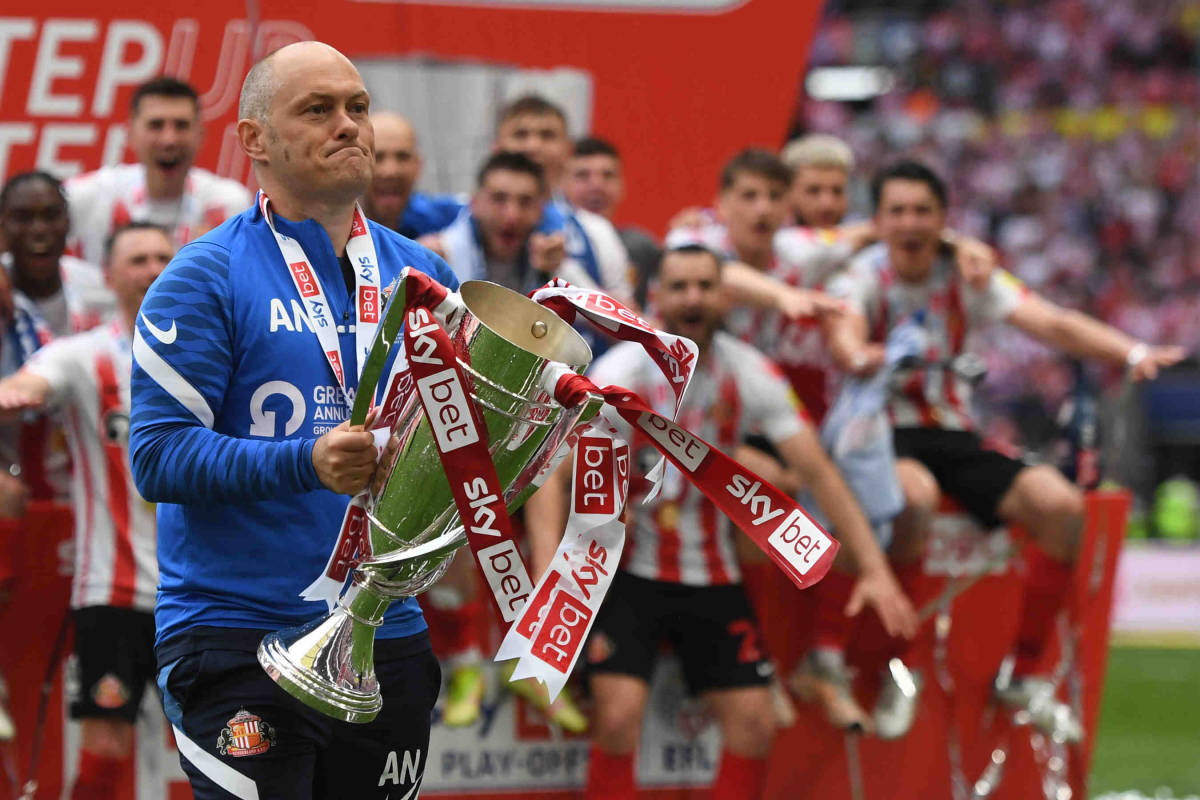
So, essentially, the club’s stated aim in to be promoted by the end of the 2025/26 season. That essentially gives them this season and two more to get the job done. To be fair as well, League One to Premier League in five full seasons shouldn’t be seen as a lack of ambition. Quite the opposite, in fact.
Speakman has all but ruled out any January sales this season, saying: “Our ownership has been rock-solid around that and I don't think we will be looking to trade players when we have that opportunity to get promoted."
However, should Sunderland fail to be promoted this season, then it’s difficult to see them being able to avoid keeping a couple players this summer. That doesn’t have to be a bad thing, though.
Take Dan Ballard, for example. He cost Sunderland £2million and is now, within 18 months, a Premier League-ready player. If Sunderland sold him for £20million and are able to repeat the trick with recruitment and development, they could have four of five comparable players in their side instead when they are pushing for promotion, who are then Premier League-ready players should they achieve it – and all within the five-year plan.
That all probably explains why there is often a big gap between the urgency the fans want the club to show and the lack of urgency they appear to have. Sunderland have a plan and they are only just coming up on the half-way point.
The only real measure
Ultimately, words are easy, and words are all that Sunderland really have to offer us right now. Sure, there has been progress made in terms of two successful, progressive years, but was that because of the model or in spite of?
We will all have our own opinions on that and the truth is that right now it is impossible to say for sure.
The only true measure is going to be long-term success, because that is their stated goal. They want to not only return Sunderland to the Premier League, but do it with strength and sustainability. No more yo-yoing, in other words. We’ve heard that one before, haven’t we? Too many times to count.
Only then will the ‘model’ be able to be described as a success, and in all honesty the first point we can probably judge them at all is after the initial five years they have given themselves.
That is the timeframe they have put on their plans, so anything before then and we are judging an incomplete piece of work.
But what we can say for absolute certainty is that Sunderland definitely have a plan. Some may not like it, but they are sticking with it. They have explained it plenty and just about every decision they have made, popular and unpopular, has been consistent with their stated strategy.
If what they are trying to do was easy, though, everyone would be doing it. It might be total genius, or it could be hopelessly fanciful. I guess we’ll just have to wait and see which.
READ MORE SUNDERLAND NEWS
- Sunderland keen to beat Championship rivals to Ghanaian defender, claims report
- Sunderland sign third Ukrainian as they lure Chelsea starlet
- The stats that show Sunderland may not be as creative as it seems
- Real Madrid star Jude Bellingham names two former Sunderland players as his heroes
- Jack Clarke latest: Contract situation will not dictate any January transfer decision
